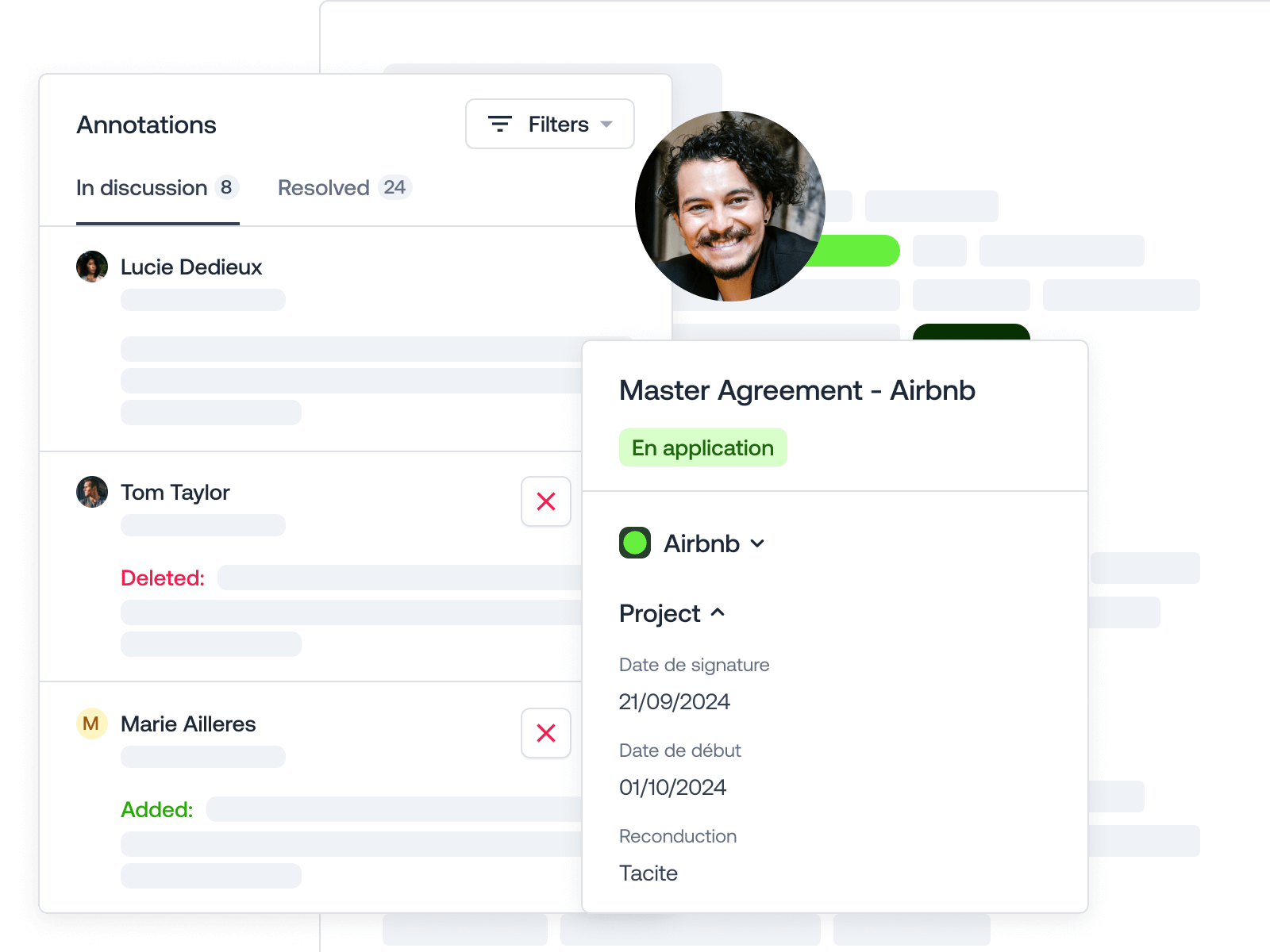Make your negotiations more efficient and secure
Manage all stages of the negotiation on a single platform and streamline communication with your teams right up to the signature.

Comments, markup and much more
Tomorro offers a range of tools designed for effective contract negotiation.



Dedicated portal for your co-contractors
Invite your co-contractors to trade on Leeway by giving them access to a dedicated portal that's separate from yours: they only see what you share, and vice versa.

The 2024 guide for optimal contract management
Free, integrated electronic signature
Streamline your negotiation process with a simple, intuitive signing experience for all stakeholders.

Start today, deploy next week
From the outset, we designed Tomorro to be simple and flexible, to suit every need.
Set up the basic functions of your Tomorro account in just a few minutes.
Our team will assist you in setting up your contract library and your contract templates.
Your account is ready and you can now invite your collaborators to use Tomorro autonomously.




















































